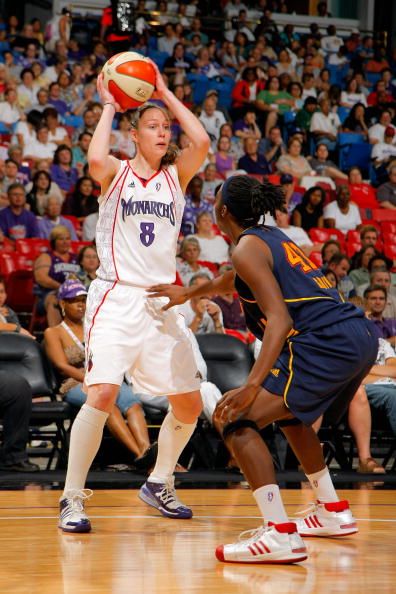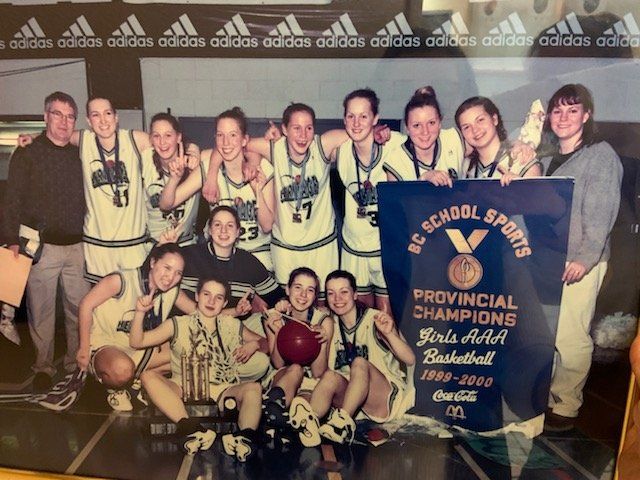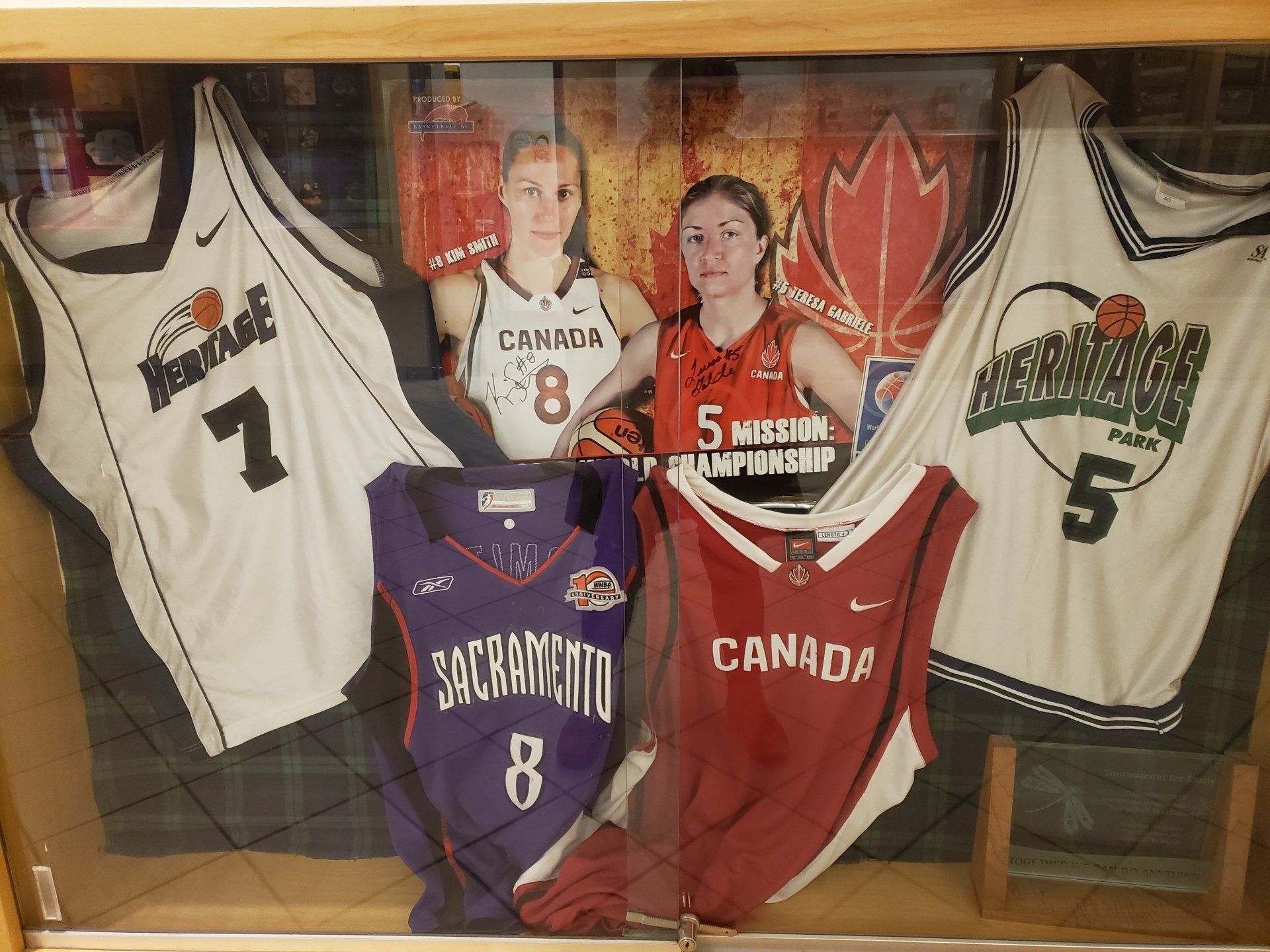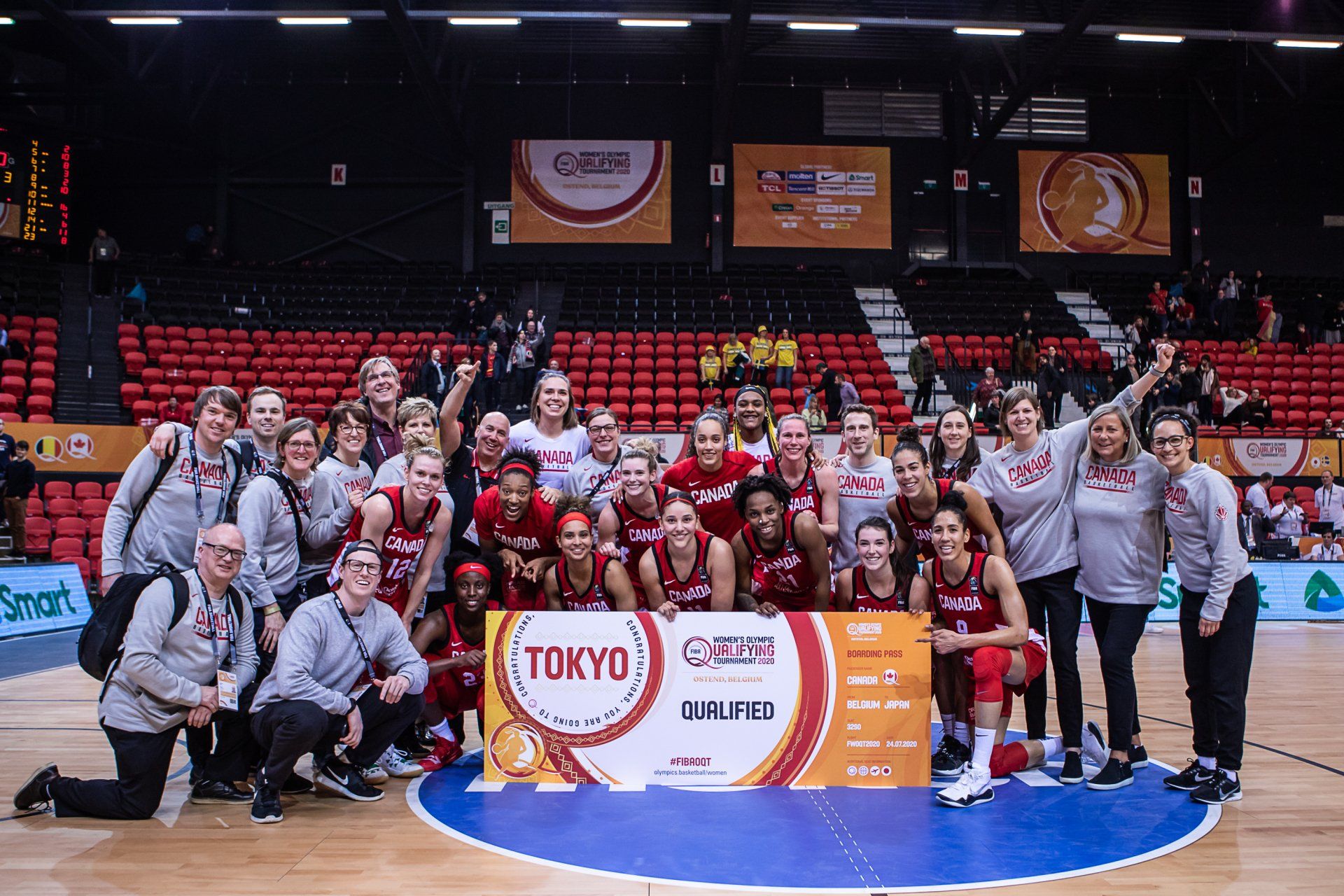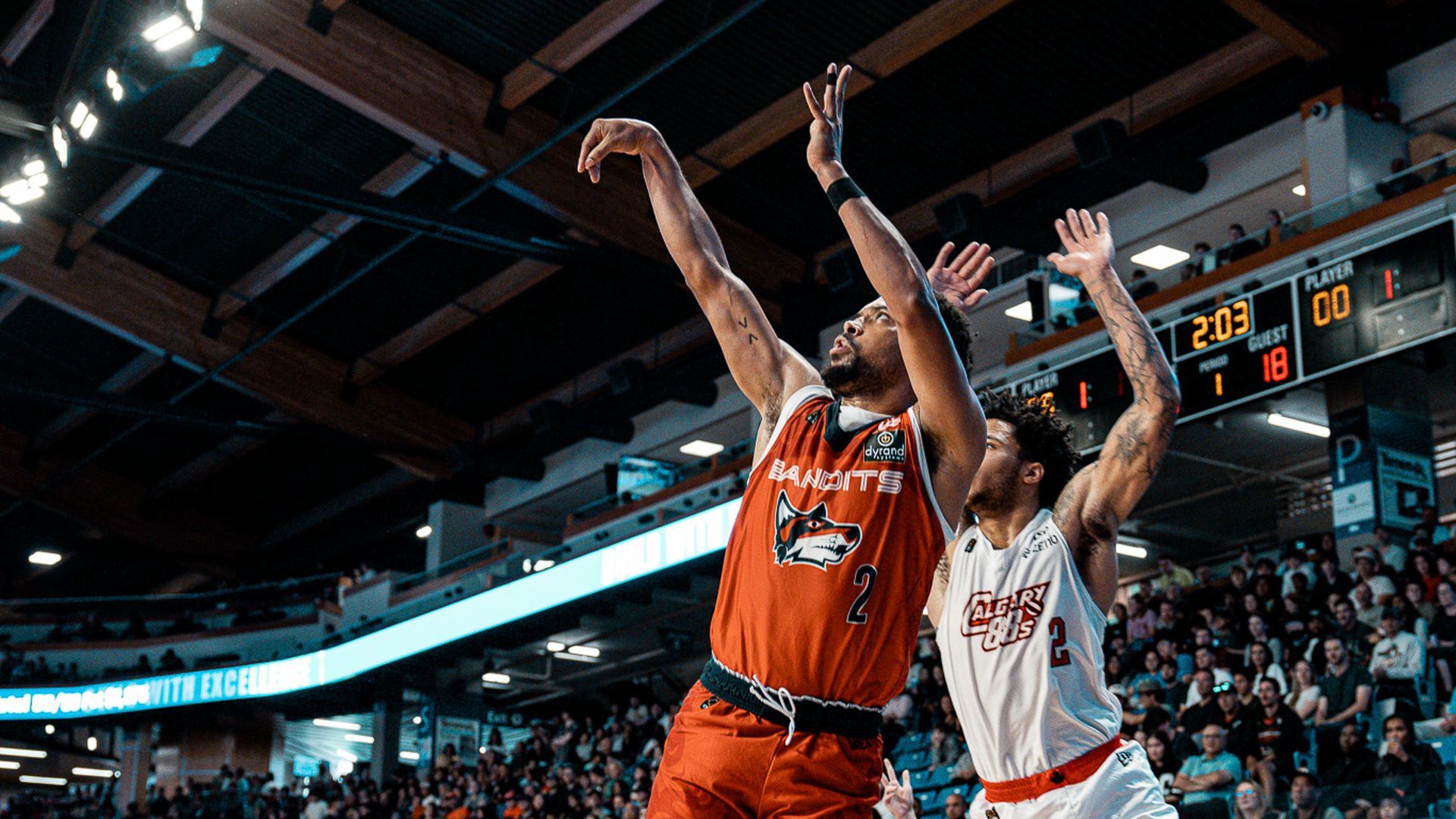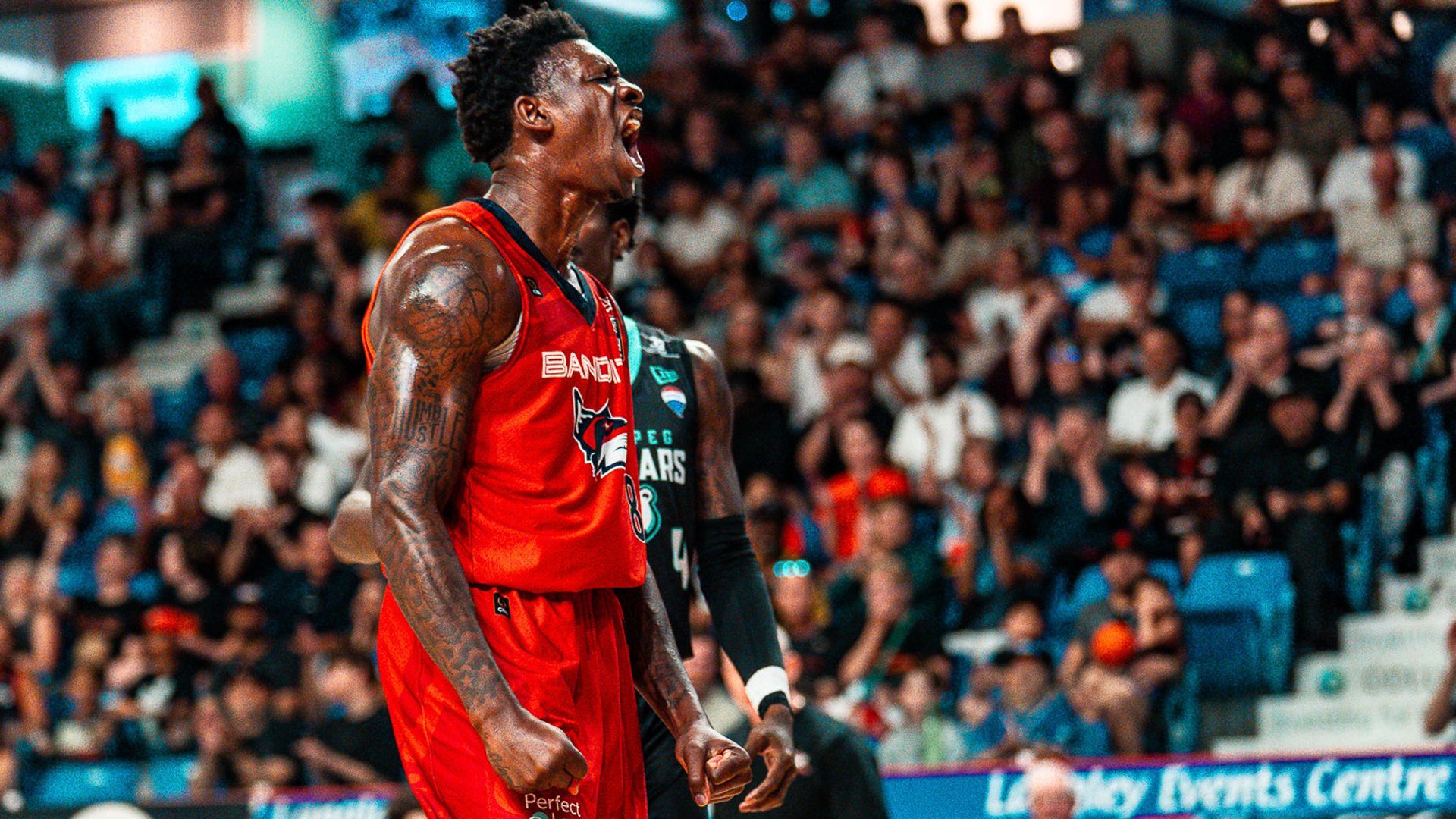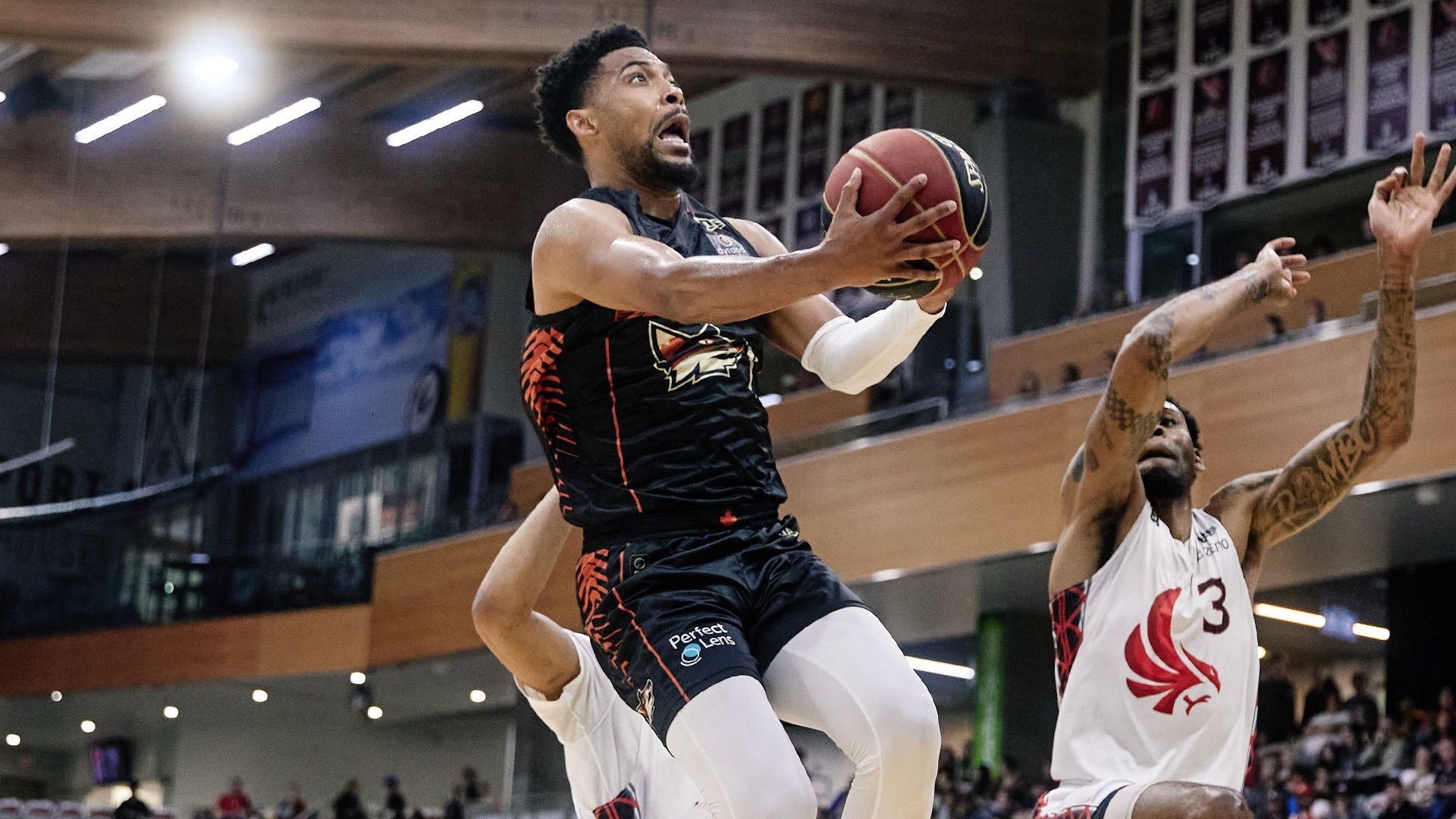'That's Kim': How a tireless work ethic has shaped the decorated career of one of BC and Canada's most successful basketball stars
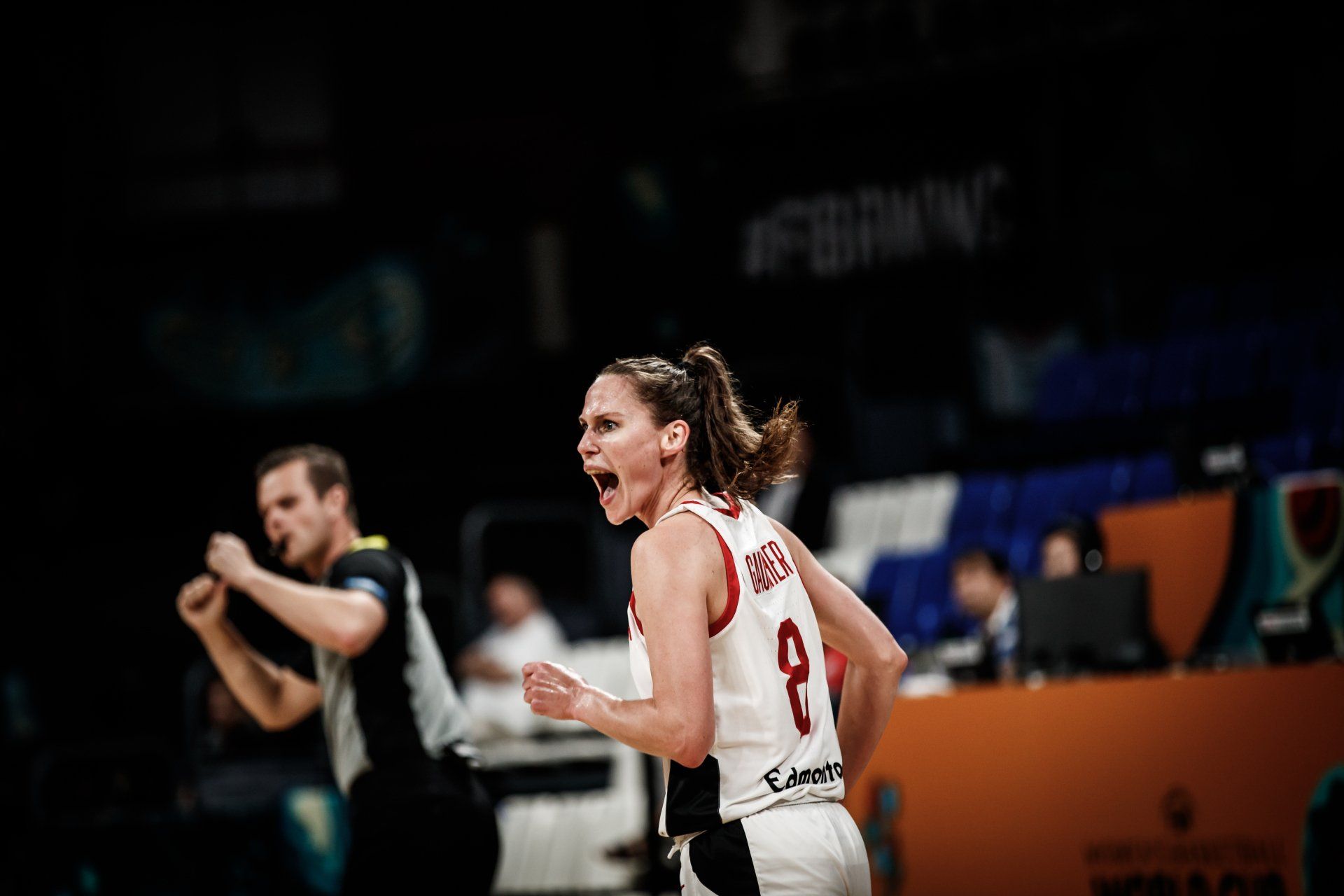
A basketball powerhouse nestled not far from the banks of the Fraser River prepared to close the doors on one of its nightly practices.
Hours earlier a collection of junior and senior varsity players helped middle schoolers with basketball promise go through drills instilled by former Heritage Park Highlanders senior girls head coach Bruce Langford. Middle schoolers who held their own with the older athletes stayed to practice with the junior girls.
A brief exodus ensued as senior girls players used the junior girls practice as an opportunity to dash home for dinner, only to return to the gym for another two-hour practice late into the evening.
Each night Kim Gaucher (nee Smith) returned home to a familiar setting. Her parents Jay and Colleen owned and managed a local grocery store called Buy-Low Foods. After dinner Jay and Collen checked the store’s security tape before relaxing. The Smith household was home to three sisters – Michelle, Kim and Meghan. Jay, an avid basketball fan himself, would often join Michelle and Kim to play outside.
Sensing Michelle and Kim’s appetite for the game, the family installed a light for the sisters to play after dark. For years, a faint yellow glow filled the Smith family’s driveway. The clock would approach midnight, but the unseen hours were a constant for the Smith sisters.
Whether closing out on a shooter and sprinting out in transition, or tying up their shoelaces in the early morning to brave the winter air to check the store after an alarm had gone off, a sound work ethic was present both within the walls of the Heritage Park gym and at the Smith household.
“When you own your own business it kind of becomes a family thing. On statutory holidays the whole family would be in the store. Me and my sisters would work the cash, bag groceries and sweep floors,” Smith Gaucher remembered. “I think you saw how much they (my parents) put in to be successful as well.”
Fast forward two decades and Smith Gaucher’s work ethic is one of the many traits that have contributed to her legacy as one of Canada Basketball’s most celebrated leaders.
Smith Gaucher is the all-time leading scorer (2,281 points) in Utah Utes women’s basketball history and is the first woman to have her jersey retired by the University of Utah. She also is a two-time Olympian, three-time provincial champion, Canadian national team captain and a first-round selection at the 2006 WNBA Draft.
The list goes on.
The Highlanders went on to win their first of three provincial titles. Never one to be satisfied, Smith Gaucher had a request of her coach, who at the time lived in central Abbotsford and woke up at four in the morning to be at the gym early so his team could practice at seven a.m. prior to school.
But that wasn’t enough. Smith Gaucher and the Highlanders wanted to practice at 6 a.m. “I remember thinking, ‘God, I’m going to have to get up at three,’” Langford said with a laugh. “My belief was we wanted kids to have passion for the game and we needed to model what we expected of them. And if we thought they needed to put in a lot of time then you needed to put in more time than they put in, so we did everything in our power to have that gym open as often as we could.”
With his team eager to buy-in, Langford didn’t hesitate to provide even more access and opportunities for his players to develop.
The Highlanders amassed a 112-5 record over three storied championship seasons between 1999-2002.
Smith Gaucher won two provincial MVP awards during her tenure with the Highlanders. Although appreciative of the accolades, she emphasized the success of the program, her teammates and what they were able to build together. Smith Gaucher acknowledged that the group arrived at Heritage Park lacked polish and experience, but through commitment was able to achieve its goals.
“Those early mornings – working out with the girls. We had so much talent on our team and our whole starting lineup went on to play university ball, which just seems so crazy,” Smith Gaucher said.
“It was this culture where you put in the work and the results would happen. Having a gym that was always open, having a coach that was always there to work with you made a huge difference.”
A Legacy in the Making
Resilience and dedication are two words often used by Smith Gaucher’s former coaches to describe the now 36-year-old veteran. Despite the taxing nature of life as an overseas professional basketball player, she has never hesitated to represent her country.
Since first donning the red and white at the age of 17, Smith Gaucher has played more than 18 years with the senior women’s national team. 213 games to be exact. From the Pan American Games, to various FIBA World Cups to the London 2012 and Rio de Janeiro 2016 Olympics, Smith Gaucher has travelled the globe in an effort to support the development of Canadian basketball.
“The program has only gotten stronger. It’s been amazing to see the rise and changing coverage, and the growth of the game across our country. We’ve had our qualification games this year televised which is so wild. Back in the day we had Doug Smith (of the Toronto Star) call for an interview during our Olympic qualification tournaments, but no one was really interested, nobody really knew what that meant,” Smith Gaucher said. “I think it is just a matter of time before the women’s national team is on the podium.”
Smith Gaucher referenced the program’s success during the celebrated era of previous stars Sylvia Sweeney and Bev Smith, whose contributions on the court, and also in their subsequent careers in media and coaching, respectively, set a promising foundation for the program.
After rising to prominence, the women’s national team narrowly missed qualifying for the Summer Olympics in Athens in 2004 and Beijing in 2008.
The program had four years to prepare for a run at the 2012 Olympics. Then national team head coach McNeill knew that the program was about to enter a period of transition due to a mixture of veterans entering the twilight of their careers and young pros looking to discover their niche.
Skeptics claimed that Canada, who had fallen to as low as the mid-20s in the world rankings, had little chance of qualifying for the Olympics. Against the odds, McNeill leaned on leaders like Gabriele, Smith Gaucher, Shona Thorburn, Courtnay Pilypaitis as well as gritty veterans like Lizanne Murphy and Krista Phillips to set the tone.
On July 1, 2012, the Canadian women’s team captured its piece of history. A 71-63 victory over Japan in a qualifying game on Canada Day in Ankara, Turkey, punched Canada’s ticket to the Olympic Games in London – Canada’s first berth at the tournament since Sydney in 2000.
The win signalled the beginning of Canada’s return to Olympic contention.
“When we qualified, I just think it was such a good feeling of, ‘I’m so happy for these women. They’ve worked so hard and they have sacrificed so much and they’ve put us back on the map’ – that was that feeling,” McNeill said.
“Kim’s been there for all of that. She’s been there for the hard times and now through 2012 the much better times. But with that said, she’s committed because she’s always believed that we could be there.”
The emotional win still carries meaning for Smith Gaucher.
“It was a really special game that will forever be the highlight of my career. I don’t even think winning a medal would be able to top that because it was just with a great group of people that had invested a lot to try and get us back on top,” she said.
However, unfinished business lies ahead for Smith Gaucher, who has played in two consecutive Olympics and was preparing for her third and potentially final Olympic stint at the Tokyo Summer Games. Prior to the outbreak of COVID-19, Canada was fresh off qualifying for the 2020 Olympics and was set to enter the tournament ranked fourth in the world.
Basketball and the Olympics took a backseat as a pandemic swept the globe. With the Olympics postponed until 2021 and the world of sport still facing uncertainty, Smith Gaucher remains positive about the group’s outlook and impact on the next generation of basketball players.
“This is just a really hungry group and it’s definitely the most talented group I’ve been around for. I was fortunate to have some amazing role models when I was first on the national team, so now to be able to be in that position and feel it come full circle is really cool,” Smith Gaucher said.
Regardless of when a timeline for the Tokyo Summer Games becomes clear, she continues to keep her sights set on the goal at hand.
“It takes a lot of hard work to get to this level, but I’ve loved every second of it. I haven’t regretted any of my decisions to go to the gym every single morning before school started. It was something that had been my dream to be an Olympian and a professional basketball player,” Smith Gaucher said.
“I did everything that I could to get there and I’ve never been the most athletic player on the court but I think I was able to study the game in different ways and be able to be a smart player and to be able to understand what my role could be on a team.”
A photo of the 2012 edition of Canada’s senior women’s team that qualified for the Olympics sits in a frame at the top of McNeill’s staircase. Each day throughout the pandemic McNeill has fondly remembered the accomplishments of the group and how proud she is of how Smith Gaucher and Canadian basketball have progressed since the London Summer Games.
An internal motor has allowed Smith Gaucher to carve out one of the most successful careers ever by a BC-born basketball player. From early mornings and late weekend nights at Heritage Park, to nail-biting finishes with Olympic implications more than a decade later, Smith Gaucher remains a competitor with a world-class work ethic.
When not playing for Canada, Smith Gaucher has suited up for USO Mondeville in France the past few seasons. In between professional and international competition, she remains the same avid hooper, eager to find whatever gym time she can, even in the latter stages of her career.
“I can’t remember the number of times when she’d come back from France or wherever she’s playing and she’d be like, ‘Hey are you training anywhere, can you get me in the gym, where are you at?’” McNeill said.
“It’s been like that since day one for Kim.”
LATEST NEWS
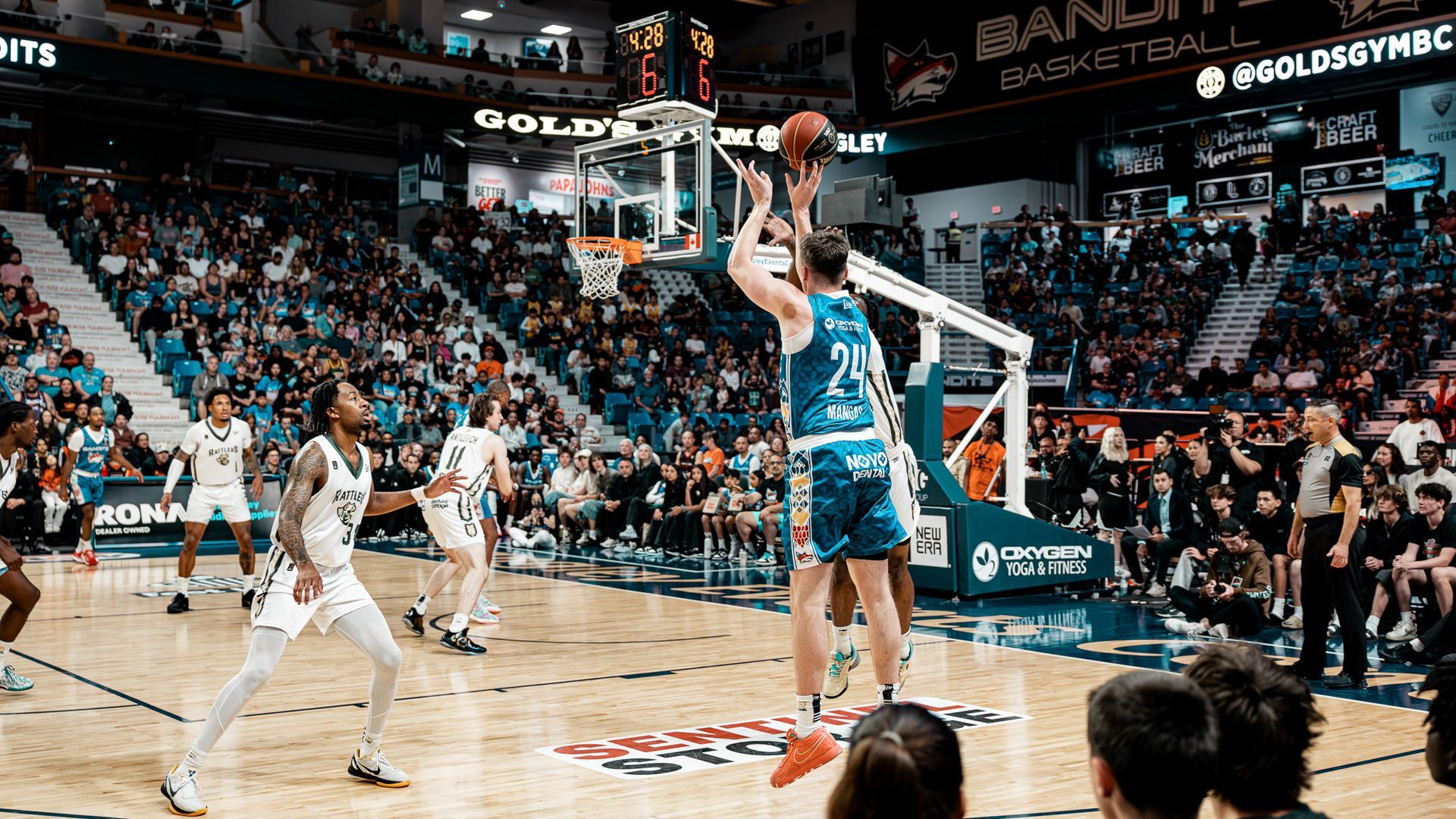
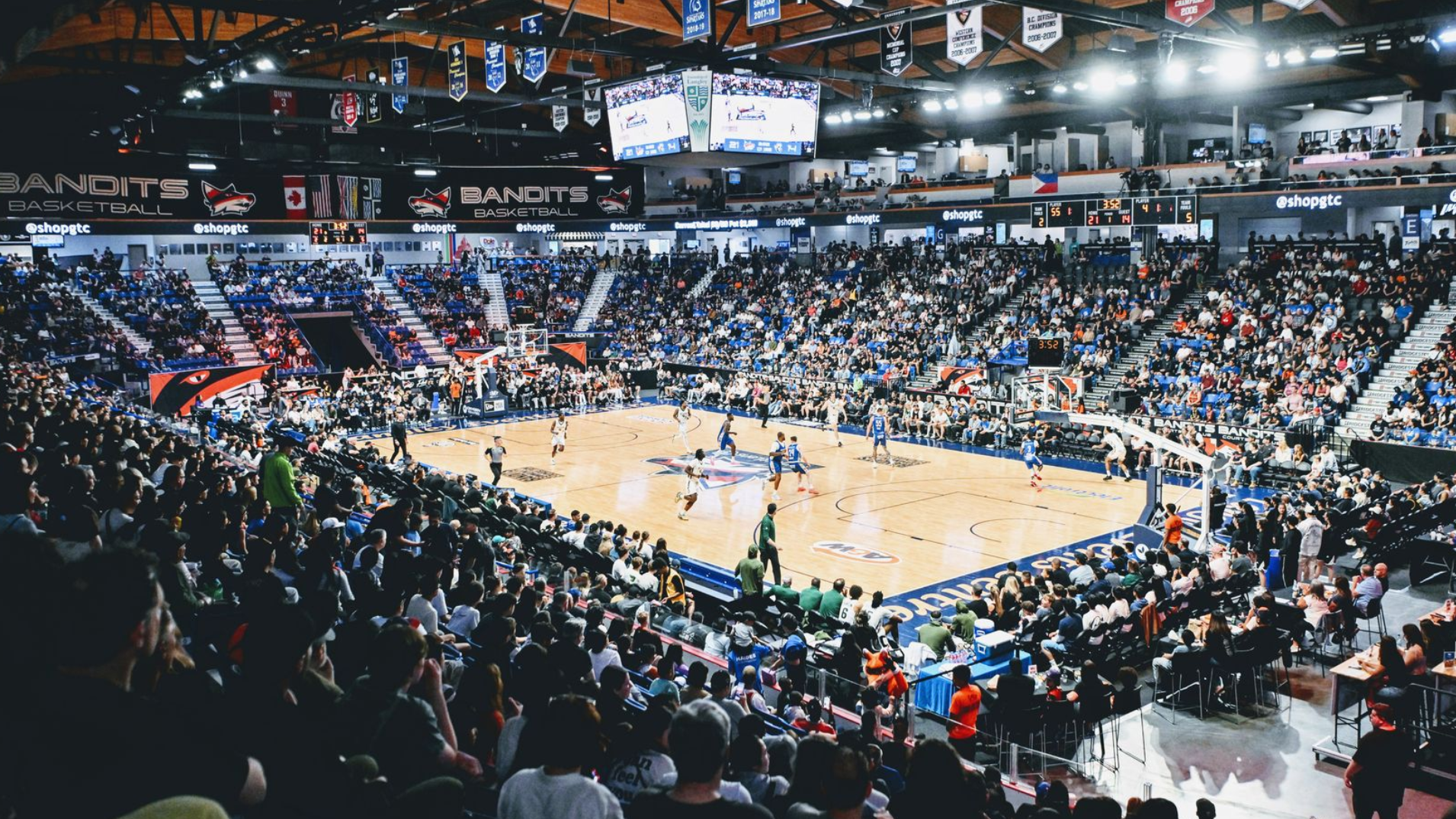
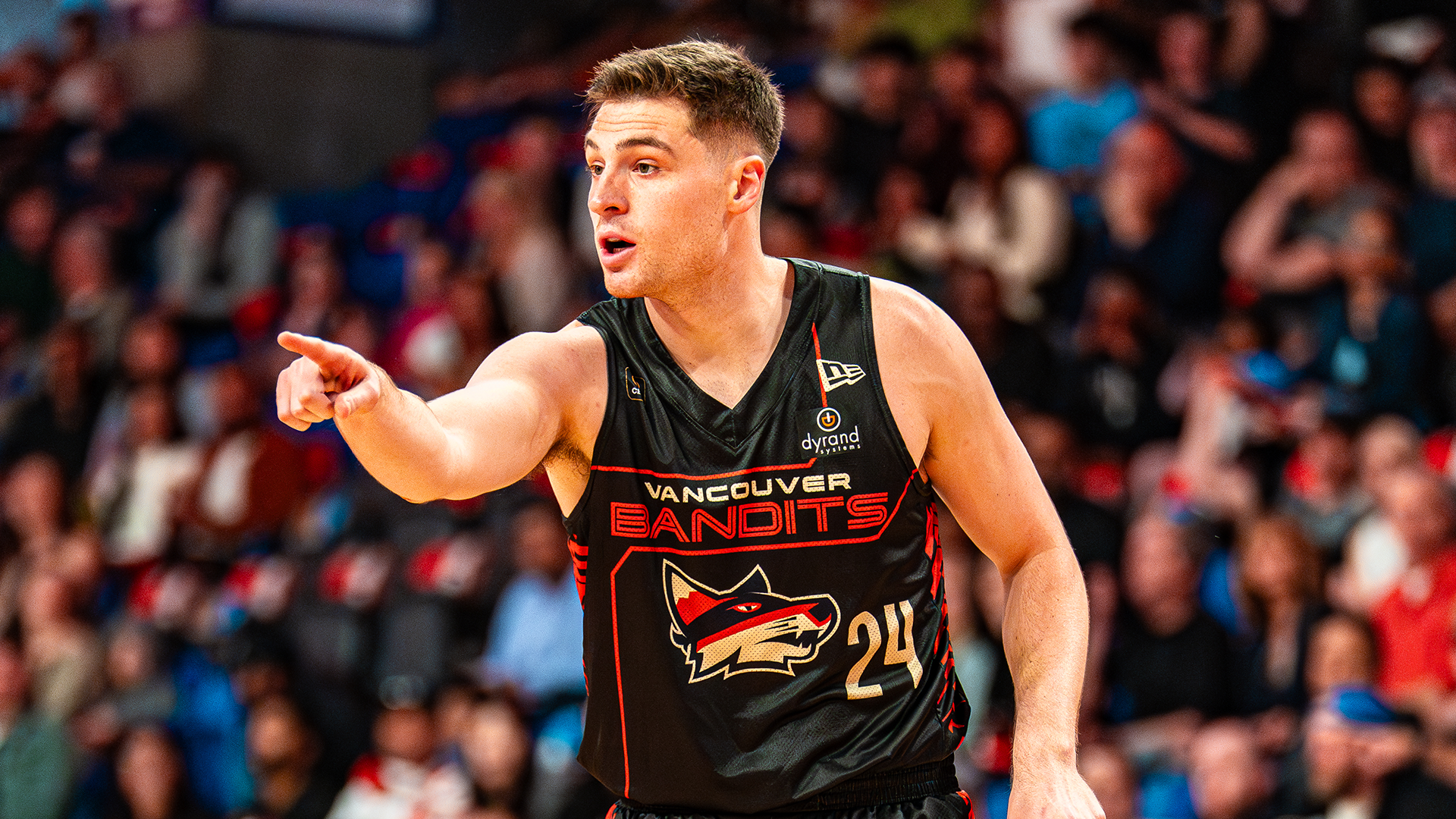
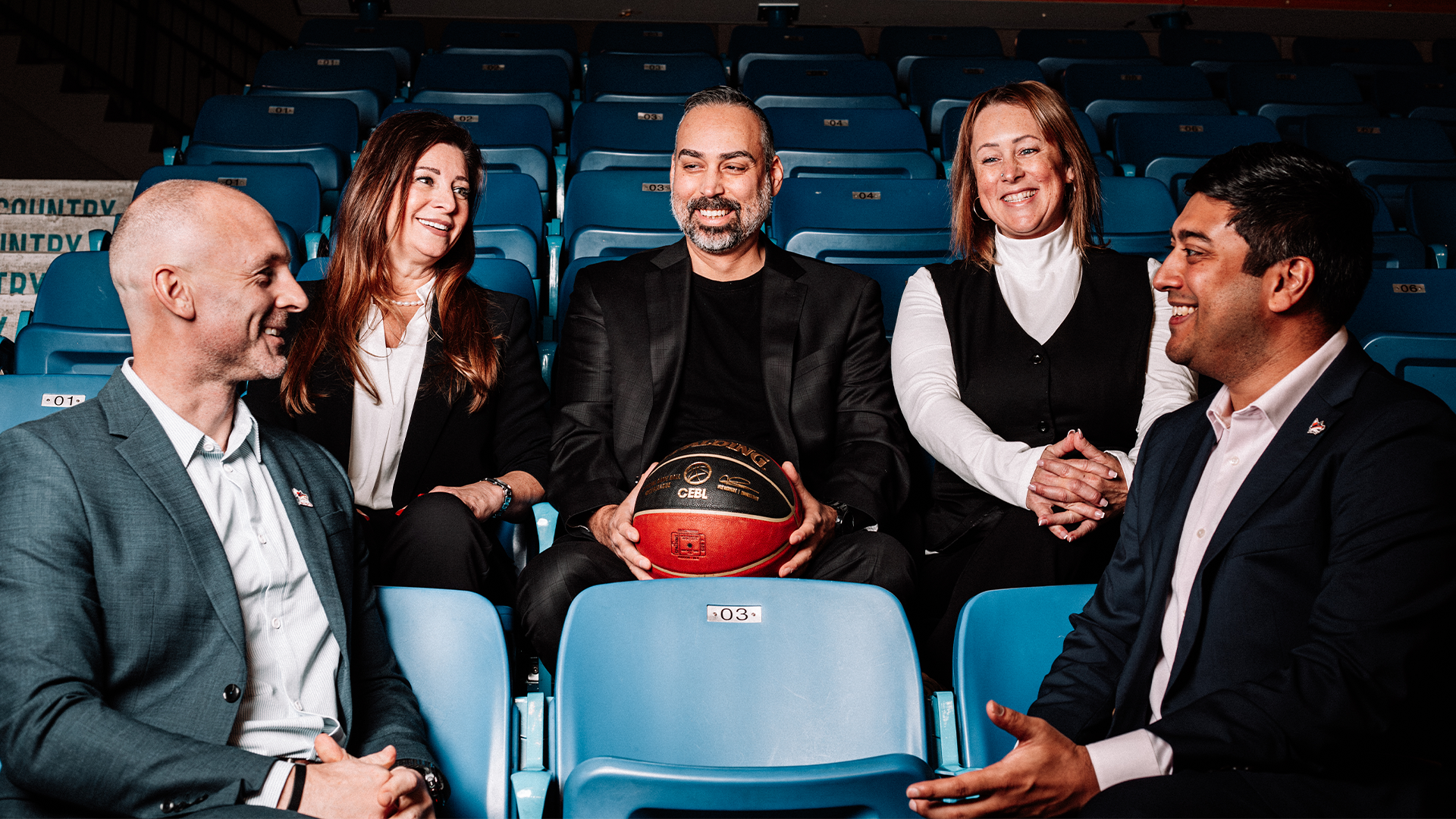
LATEST VIDEO






